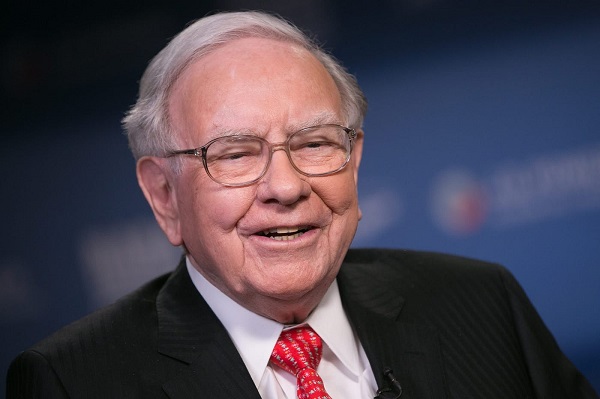Warren Buffett, widely regarded as one of the most successful investors of all time, is no stranger to making bold moves in the stock market.
However, when his company, Berkshire Hathaway, reduced its stake in Apple in recent years, it raised a few eyebrows among investors and market analysts. Was this a strategic decision in line with Buffett’s value-investing principles, or did he make a rare misstep?
The Context: Berkshire’s Relationship with Apple
Warren Buffett’s relationship with Apple has been a fascinating one. Berkshire Hathaway first bought Apple shares in 2016, investing $1 billion in the tech giant.
Over the years, Apple became one of the most significant holdings in Buffett’s portfolio, rising in value as Apple’s stock soared, making it a key contributor to Berkshire’s performance.
Apple, with its strong brand, loyal customer base, and consistent revenue growth, seemed like a natural fit for Buffett’s investment philosophy, which centers around investing in companies with durable competitive advantages. For Buffett, Apple wasn’t just a tech company—it was a consumer product powerhouse, with its ecosystem of hardware, software, and services providing immense value.
The Decision to Sell
In 2022, Berkshire Hathaway made the decision to reduce its stake in Apple. While Buffett didn’t completely exit the position, the move raised questions about the future direction of the company’s investment strategy. Did this signal a loss of confidence in Apple’s long-term prospects? Or was it simply a matter of portfolio management?
Berkshire’s sale of Apple shares was not the first time Buffett had adjusted his holdings in a company. However, considering Apple’s importance in Berkshire’s portfolio, this particular move caught the attention of many.
Some analysts speculated that Buffett might have felt the stock had reached its peak or that he wanted to free up capital for other investments.
Reasons Behind the Sale
Buffett’s decision to sell part of the Apple stake could be influenced by several factors:
- Valuation Concerns: Apple’s stock had been climbing for years, and some analysts believed the stock was becoming overvalued. Buffett himself has often stated that he prefers to buy stocks at a reasonable price rather than at inflated levels. By selling some of his holdings, Buffett might have been taking profits and reducing exposure to a stock that could be overpriced.
- Portfolio Diversification: Another reason for the sale could be to achieve a more balanced portfolio. Berkshire Hathaway holds a diverse range of investments, from insurance to energy to consumer goods. By reducing its stake in Apple, Buffett could be rebalancing the portfolio to avoid overconcentration in one company.
- Management of Cash Flow: As one of the largest companies in the world, Apple generates significant cash flow.
- By reducing Berkshire’s stake, Buffett might have been positioning the company to deploy capital into other opportunities that offered better potential for growth or value.
Did Buffett Make a Mistake?
While it’s easy to question Buffett’s decision in hindsight, especially considering Apple’s continued success, it’s important to remember that Buffett has always been a long-term investor. He tends to make decisions based on fundamentals rather than short-term stock price movements.
Apple’s stock has remained strong post-sale, but it’s important to note that Berkshire Hathaway still retains a sizable position in the company. Buffett’s decision to sell a portion of the stock doesn’t necessarily mean he lost faith in Apple’s future. Instead, it could be seen as a strategic move to optimize the portfolio.
Additionally, Buffett is known for his ability to recognize when a company’s growth potential is starting to slow or when the market has priced in too much optimism. If Apple’s stock becomes too expensive or its growth slows, Buffett’s decision to sell could ultimately prove wise.
Looking Ahead: Apple’s Future
Apple continues to innovate and diversify its business, with its services segment—comprising iCloud, the App Store, and Apple Music—becoming a significant driver of revenue. The company’s push into wearables, augmented reality, and even artificial intelligence could provide new avenues for growth, making it a compelling long-term investment.
However, Apple faces challenges. Increased competition in the smartphone market, regulatory scrutiny, and the need to maintain product innovation are all factors that could affect the company’s performance in the future. Buffett’s decision to scale back his position in Apple could reflect an awareness of these risks, even if the company’s fundamentals remain strong.
Conclusion
Did Warren Buffett make a mistake by selling part of his Apple stock? In short, it’s too early to say. While Apple’s stock has continued to perform well, Buffett’s decision was likely based on sound investment principles. As with all of his decisions, he remains focused on long-term value rather than short-term fluctuations.
Buffett’s sale of Apple stock should not be viewed as a loss of confidence in the company’s future but rather as a reflection of his ever-evolving investment strategy.
Ultimately, only time will tell whether the move proves to be the right one, but Buffett’s track record suggests that, regardless of the outcome, it was a carefully considered decision based on the broader goals of Berkshire Hathaway’s portfolio.
Also Read
Top 5 AI stocks to watch in 2025
VOO ETF Faces Volatility Amid Broader Market Decline
